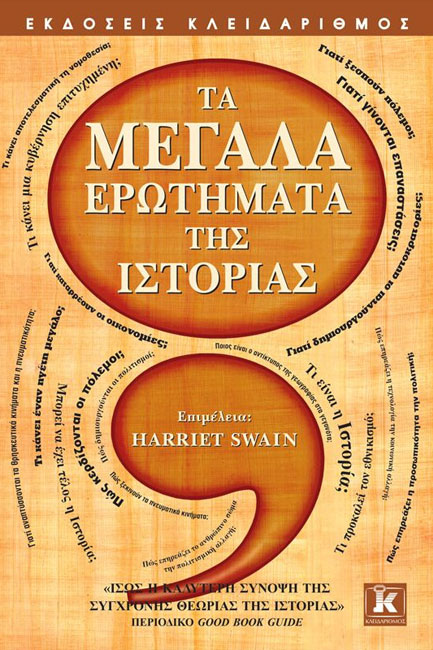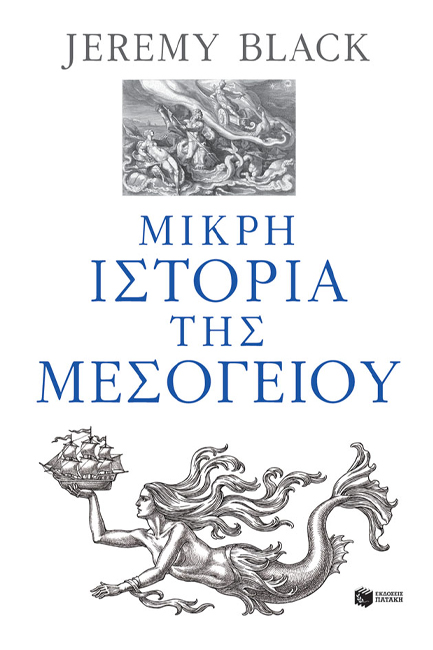A BRIEF HISTORY OF THE MEDITERRANEAN
Εκδότης Robinson , ISBN 9781472144409
The grand object of travelling is to see the shores of the Mediterranean.'Samuel Johnson, 1776The Mediterranean has always been a leading stage for world history; it is also visited each year by tens of millions of tourists, both local and international. Jeremy Black provides an account in which the experience of travel is foremost: travel for tourism, for trade, for war, for migration, for culture, or, as so often, for a variety of reasons. Travellers have always had a variety of goals and situations, from rulers to slaves, merchants to pirates, and Black covers them all, from Phoenicians travelling for trade to the modern tourist sailing for pleasure and cruising in great comfort.
Throughout the book the emphasis is on the sea, on coastal regions and on port cities visited by cruise liners - Athens, Barcelona, Naples, Palermo. But it also looks beyond, notably to the other waters that flow into the Mediterranean - the Black Sea, the Atlantic, the Red Sea and rivers, from the Ebro and Rhone to the Nile. Much of western Eurasia and northern Africa played, and continues to play, a role, directly or indirectly, in the fate of the Mediterranean.
At times, that can make the history of the sea an account of conflict after conflict, but it is necessary to understand these wars in order to grasp the changing boundaries of the Mediterranean states, societies and religions, the buildings that have been left, and the peoples' cultures, senses of identity and histories. Black explores the centrality of the Mediterranean to the Western experience of travel, beginning in antiquity with the Phoenicians, Minoans and Greeks. He shows how the Roman Empire united the sea, and how it was later divided by Christianity and Islam.
Περίληψη
The grand object of travelling is to see the shores of the Mediterranean.'Samuel Johnson, 1776The Mediterranean has always been a leading stage for world history; it is also visited each year by tens of millions of tourists, both local and international. Jeremy Black provides an account in which the experience of travel is foremost: travel for tourism, for trade, for war, for migration, for culture, or, as so often, for a variety of reasons. Travellers have always had a variety of goals and situations, from rulers to slaves, merchants to pirates, and Black covers them all, from Phoenicians travelling for trade to the modern tourist sailing for pleasure and cruising in great comfort.
Throughout the book the emphasis is on the sea, on coastal regions and on port cities visited by cruise liners - Athens, Barcelona, Naples, Palermo. But it also looks beyond, notably to the other waters that flow into the Mediterranean - the Black Sea, the Atlantic, the Red Sea and rivers, from the Ebro and Rhone to the Nile. Much of western Eurasia and northern Africa played, and continues to play, a role, directly or indirectly, in the fate of the Mediterranean.
At times, that can make the history of the sea an account of conflict after conflict, but it is necessary to understand these wars in order to grasp the changing boundaries of the Mediterranean states, societies and religions, the buildings that have been left, and the peoples' cultures, senses of identity and histories. Black explores the centrality of the Mediterranean to the Western experience of travel, beginning in antiquity with the Phoenicians, Minoans and Greeks. He shows how the Roman Empire united the sea, and how it was later divided by Christianity and Islam.
Πληροφορίες προϊόντος
- Συγγραφέας Black, Jeremy
- Eκδότης Robinson
- ISBN 9781472144409
- Κωδικός Ευριπίδη 040100071980
- Έτος κυκλοφορίας 2020
- Σελίδες 320
- Διαστάσεις
- Βάρος 350 gr

















